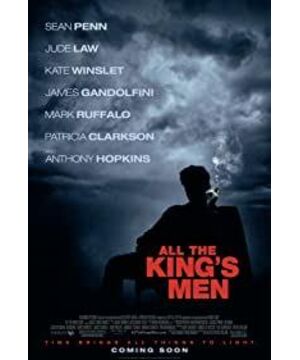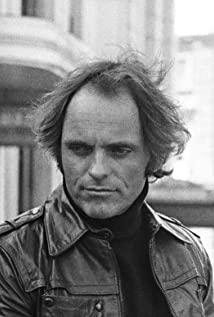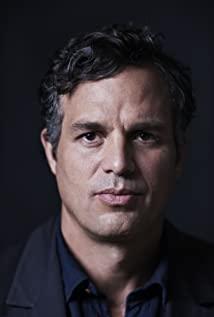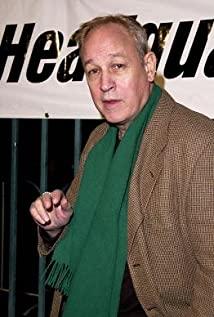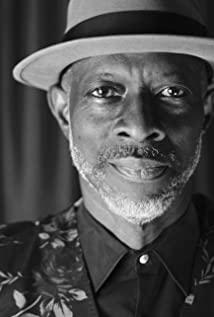This is the second edition of "The Kings". It was filmed once in the United States on November 8, 1949. At that time, it was nominated for 7 Oscars, and finally won the best picture, best actor, and best actress. Supporting three awards. However, the 2006 edition in front of us may not have this luck.
Whether it is the 1949 edition or the 2006 edition, the mother is the novel of the same name by the American writer Robert Penn Warren who won the Pulitzer Prize in 1946. There is also a real prototype behind this novel, which is Huey Pierce Long (1893-1935), the former U.S. Senator and Governor of Louis Anna State.
http://photo4.yupoo.com/20061208/004129_1213471336_xrycwzfu.jpg
He published an autobiography called "Every Men a King" in 1933, so the novel by author Robert Pei Warren is called "All the King' Men", this technique is called innuendo. The real projection created the epic novel "The King's Group", and there are movies on top of the novel. Before watching the projection of the projection, let's take a look at the truth of history:
Huey Pierce Long was born on August 30, 1893 in Winnfield, Louisiana. Among the 11 children in the family, he ranked ninth. Before he entered Tulane University in New Orleans to study law in 1914, Long worked as a salesman in Texas and Tennessee. He completed the three-year course in only eight months. At the age of 21, he became a lawyer. In movies and novels, his name is Willie Stark (Willie Stark), a tax registrar.
Long started his career as a lawyer in the resort and quickly gained fame as a fighter for the public. He himself once said: In court, I always stand on the side of the little people, the side of the oppressed. He joined the Democratic Party and actively participated in political activities. In 1928, Long began to seek the public office of Governor Louis Anna. The theme of the campaign was education. He pointed out that the illiteracy rate in Louisiana at that time was as high as 22%, which was the highest in the United States. During the campaign, his attacks on large companies and companies won the hearts of the people, and he was finally elected governor with a historic advantage of 92,941 to 3,733 votes. In the movie, Sean Pan reproduced Stark's campaign speech in the novel with superb acting skills. In the fields and at the factory docks, his sharp, passionate, and accented speech won the hearts of the general public.
After taking office, Long began to criticize the power structure of the state government and tried to plant his supporters. He was involved in various project contracts, and even forced government employees to distribute his own newspaper "Louis Anna Progress" for him. Although his opponents claimed that he was a dictator, he did make a lot of innovations. Including providing free school textbooks, opening free adult literacy night schools, increasing investment in universities, and so on.
In 1928, there were only 331 miles of highway in the state of Louis Anna. After Long became governor, he carried out infrastructure construction projects and planned to extend Luzhou's highway to 3,000 miles. Let every white child in Luzhou have schools wherever they can walk. In order to cover the cost of building roads and studying, Long increased the tax rates of various companies in the state of Louisiana.
Long also wanted to impose a new tax on oil companies in the state of Louis Anna, but the state legislature rejected his bill and prepared to impeach him. The charges are: embezzlement of state public funds and illegal borrowing. However, the state Senate failed to pass the impeachment case against Long by two votes, reportedly because he bribed several of the senators heavily before the vote.
In 1930, Long was elected to the U.S. Senate. As a senator, he criticized the measures taken by the then President Herbert Hoover and the government to deal with the Great Depression. In 1932, Long entered the core of the Democratic Party and supported Roosevelt (Franklin D. Roosevelt.) running for President of the United States. However, after Roosevelt was elected, Long began to criticize the "Roosevelt New Deal." Believing that the "Emergency Banking Act" had little effect, severely criticized the "National Rejuvenation Act" and accurately foreseen that the regulations on wages and prices would be determined by large industrialists. He said that this decree has all the shortcomings of socialism, but it does not have any advantages.
Long called for the redistribution of social wealth, citing the argument that "2% of the American population controls 60% of American social wealth" to support him. He proposed a new taxation plan, the target is wealthy people with wealth of more than 1 million U.S. dollars. As a result of the progressive tax approach, according to his proposal, all the portion of the property over 8 million US dollars will be used as tax, and the inheritance of 1 million US dollars or more will be confiscated by the government. This huge tax will be used by the U.S. government for the basic living security of ordinary American families, and each family will receive basic real estate worth $5,000 and a minimum income of $2,000 per year. The remaining part will be used for education, pensions, retirement benefits and government public works.
His request aroused widespread attention. Long hired a missionary named Gerald LK Smith to travel to the South of the United States for publicity and set up a "distribution of our wealth club." This move was unprecedentedly successful. By 1935, there were 27,000 such clubs in the United States with 4.684 million members. In 1933, Long published his own books "Every Men a King" and "American Progress", each of which sold 300,000 copies, and the special edition printed 1.5 million copies.
In 1934, Long held a special meeting in the Luzhou legislature, allowing him to control the state elections, use the National Guard and establish his own secret police department. In 1935, he announced his candidacy for president.
For a long time, Long and Judge Benjamin Pavy had a bad relationship, but he was unable to pull the other side off his horse. In retaliation, he managed to expel the two daughters of the judge from teaching. Long warned Judge Pavy that if the other party confronted himself again, then he would declare that the other party’s family had a "coffee blood" because Judge Pavy’s father-in-law was said to have a black mistress. On September 8, 1935, Judge Pavy’s son-in-law, Carl Weiss, heard rumors that his wife was the daughter of a black man. In furious, he went to the State Capitol to find Long. Upon seeing it, Carl Weiss drew out his 32-caliber pistol and shot Long in the abdomen. Six of Long's guards drew their guns back and shot Carl Weiss on the spot. One of the guards' bullets bounced back from the pillar and hit Long in the waist.
At first, the doctors judged that Long's injury was not serious and performed an operation to treat the wound, but they did not find a bullet that had penetrated Long's kidney. By the time they discovered this, Long was already too weak to undergo surgery. He died on September 10, 1935. His last words were: "Don't let me die, I still have a lot to do." (Don't let me die, I have got so much to do.)
Long's life was controversial, so 11 years after him, the writer Robert Per. Warren wrote "The King's Team". In 2006, the story was once again put on the screen. With the eyes of the governor’s aide Jack, how a little man from a humble background climbed to the peak of power step by step, how his former idealism gathered the public around him, and how he himself mutated a little bit in his political career, gradually betraying his original Oath, betrayed his wife. In the end, it is no different from all politicians, using despicable means, being lustful, corrupt and greedy, and obsessed with power.
The prototype of the novel does exist in American history. From a different perspective, everyone has a different judgment on Long. Looking at him today, we don’t have to repeat the platitudes like "death of an idealist" or "power corrupts" (Lüqiu Luwei). One must not forget the fact that Americans at that time were experiencing the Great Depression, and under the hardship of life, there must be extraordinary people who appeared and made extraordinary claims. And the United States in 1935 was far from the level of rule of law and speculation today, so it is not surprising that a character like Long appears. What he did back then is not a gentleman, nor does it meet the standards of today's free economy, but the Americans in distress felt that they could see hope in him, and even acquiesced to his nonsense.
In the writer's pen, he did not make simple moral judgments. Rather, I want to allow readers to see how a person changes in the power field through the description of human nature, and therefore insight into the weakness and complexity of human nature. The film did not perform very well in this respect, it seemed blunt and direct. One after another, Stark was like two people. The worst is the music. In the film, a dancing girl skating scene is accompanied by the tango classic Por Una Cabeza (Por Una Cabeza) from "Scent of a Woman" and "Schindler's List", which is inexplicable. Surprised. If the director Stephen Zelion was once known for his screenwriting ability, then it can be said that "The Kings" did not reflect his due level. If it weren't for Pan's performance, then this film is nothing. Too weak themes, vague character mentality, inexplicable film soundtrack, it is nothing.
Reference materials: The
information about LONG comes from: http://www.spartacus.schoolnet.co.uk/USAlongH.htm
"All The King's Men" English novel reading address: http://www.sparknotes.com/lit/ kingsmen/section1.html
However, what is interesting is that if you read a novel after watching a movie, your reading comprehension and reading speed will be much improved. Because the novel itself has many scene descriptions, and the movie visualizes them. Going back to read the novel, there is a strange sense of fluency.
View more about All the King's Men reviews


